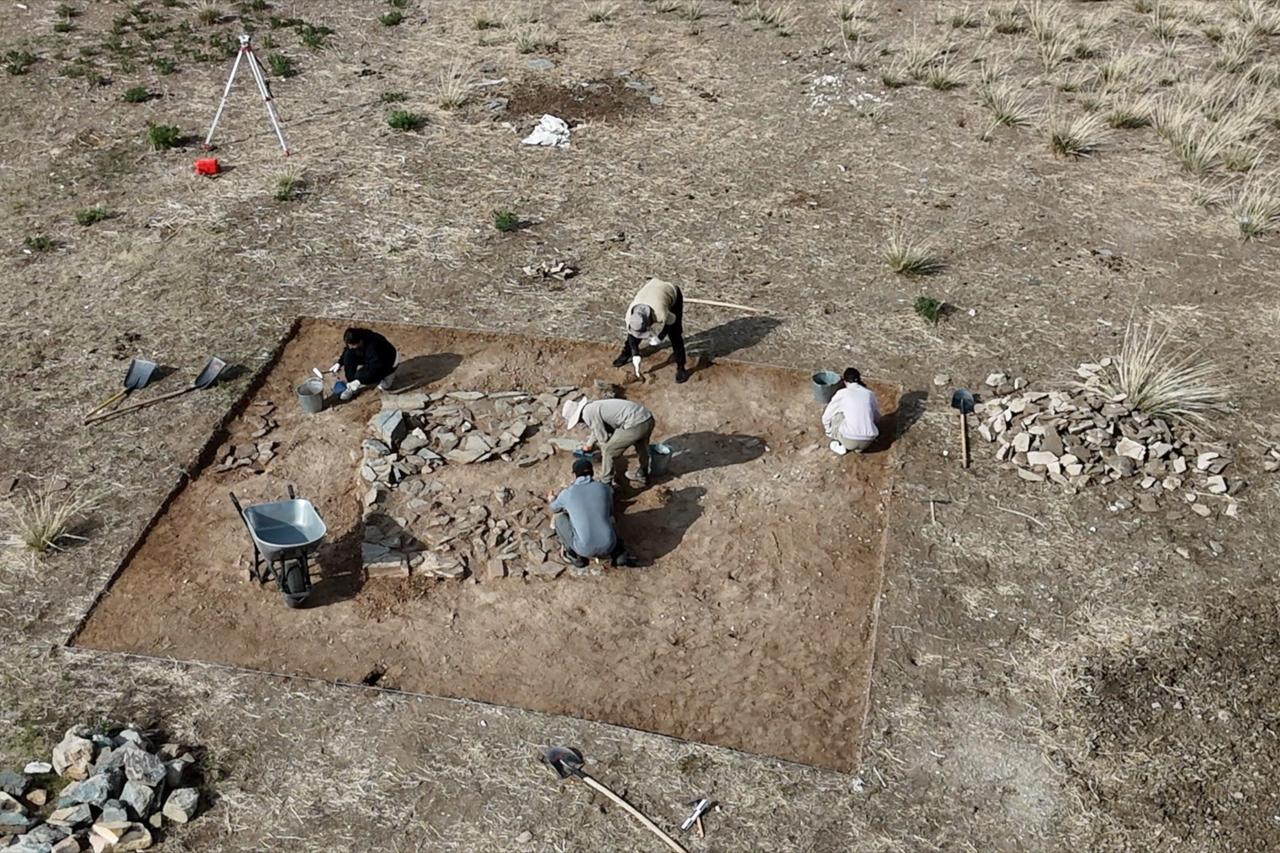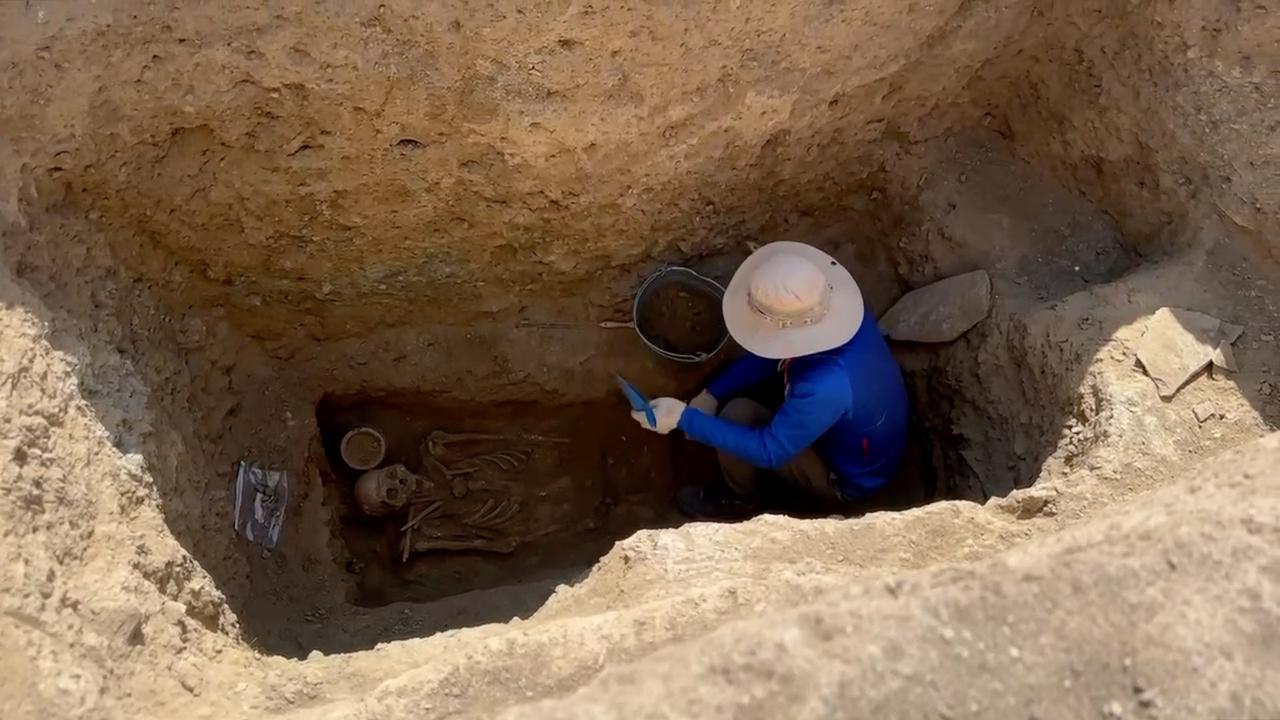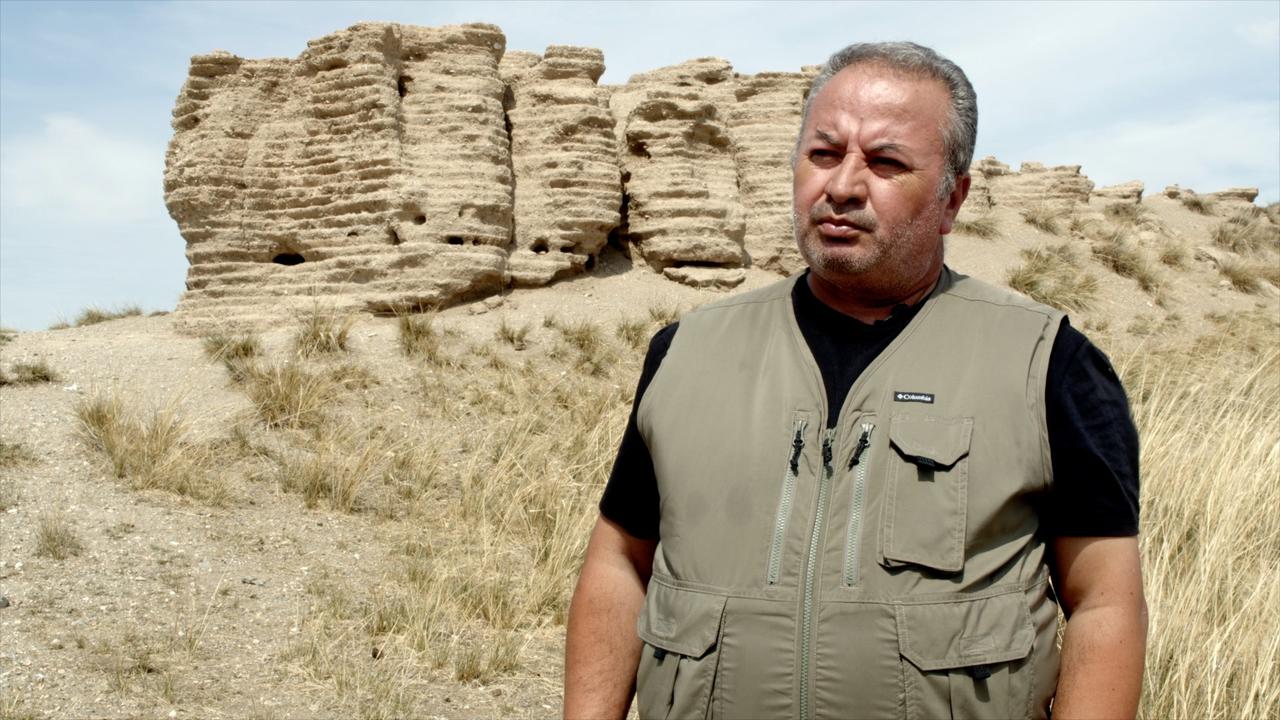
Excavations continue at the lost city of Togu Balik, discovered last year during archaeological work in the Tuul Valley in Mongolia. The project aims to gain deeper insights into the lifestyle of ancient Turks, particularly in areas such as religious beliefs, funerary practices, and urban planning.
The excavations are a joint effort between Izmir Katip Celebi University (IKCU) and the Institute of Archaeology of the Mongolian Academy of Sciences. Faculty members from IKCU’s faculty of social and human sciences are actively participating in the excavation efforts in Mongolia as part of a collaboration protocol, according to a statement from the university. It is being carried out with the support of the Turkish Cooperation and Coordination Agency (TIKA).
A team of 40 researchers is working on the joint excavation of the ancient settlement in Mongolia’s Tuul Valley, believed to be Togu Balik, a city associated with the (Nine Oghuz tribes) and the same groups mentioned in the Bilge Khagan and Kul Tigin inscriptions and known as founders of the Uyghur state.

The excavation, being conducted across a 100-square-kilometer area, is being coordinated by Professor Saban Dogan, dean of the faculty of social and human sciences at IKCU, and led by Professor Anil Yilmaz and Professor Enkhtur Altangerel. It includes the ruins of cities on both sides of the Tuul River, as well as the surrounding Mayhan, Tomst, and Agit mountains.
In addition to the core excavation team, the project also involves archaeologists, art historians, botany experts, and paleographers, contributing their expertise.
A field laboratory has been established in the valley, where the unearthed artifacts are carefully examined. Mongolian scientists are also participating in the excavation, which is shedding new light on and potentially reshaping the known history of the Turks.
According to a statement from Dogan, a multidisciplinary approach is being used to better understand daily life, the economy, and the architecture of the ancient city of Togu Balik.

Dogan emphasized the significance of this year’s discoveries, stating: “We found that gold and copper were processed in areas and workshops located on the outskirts of the city, which we discovered last year. Our surface surveys also revealed ancient mining pits. These findings strongly support the idea that the city’s economy was based on mining. We will continue our research in this direction. At the same time, we are studying the city's architecture. We’re close to completing our work on the remains of a palace structure.”
Previously, excavation efforts led by IKCU and the Institute of Archaeology of the Mongolian Academy of Sciences confirmed that the site in Mongolia’s Tuul Valley is indeed the city of Togu Balik, known to have been inhabited by the (Nine Oghuz) tribes, who also fought against the Gokturks.